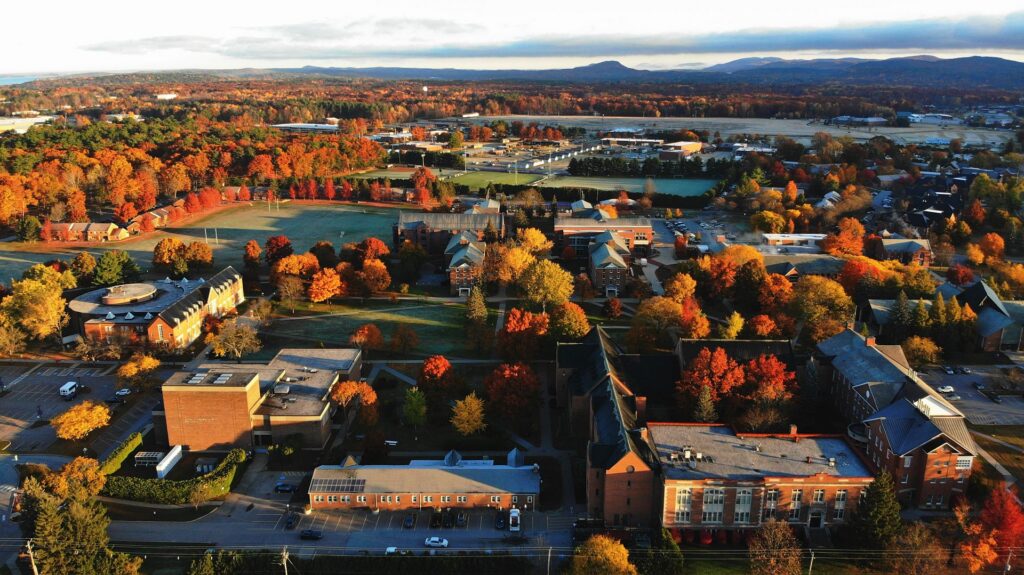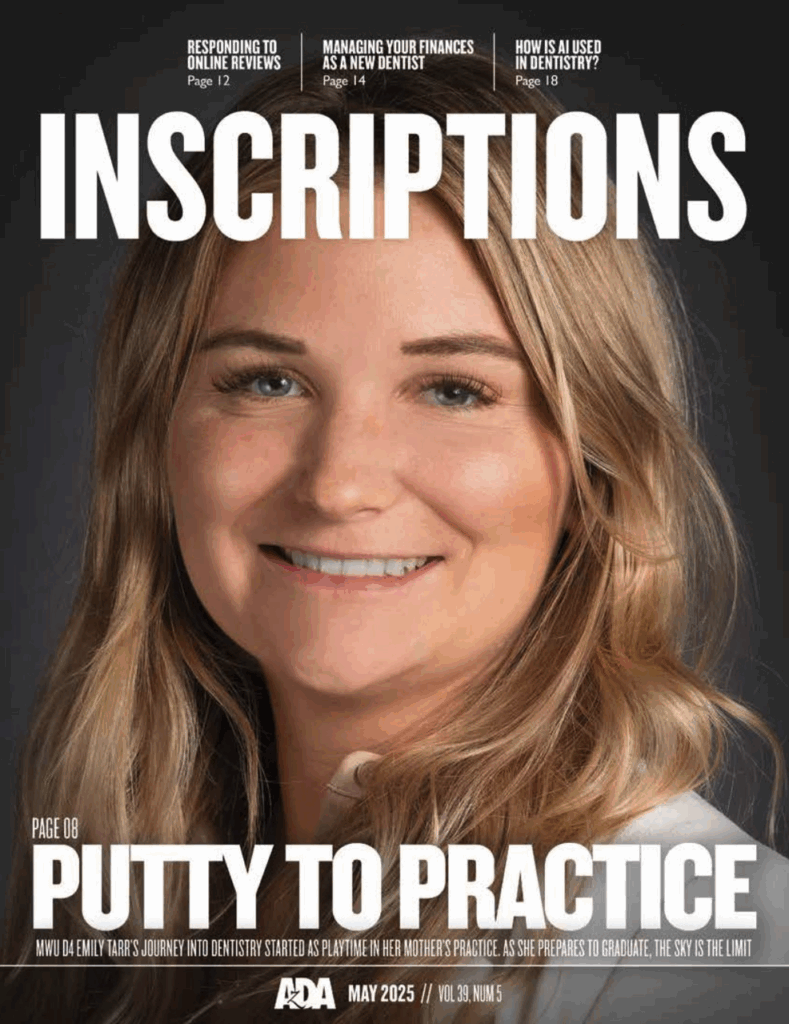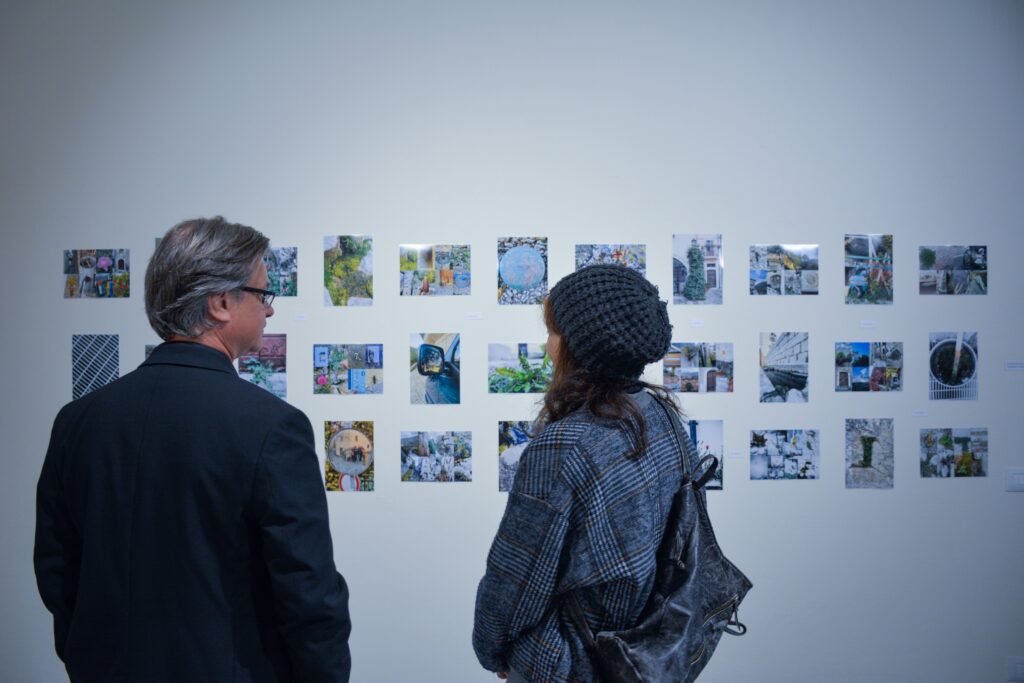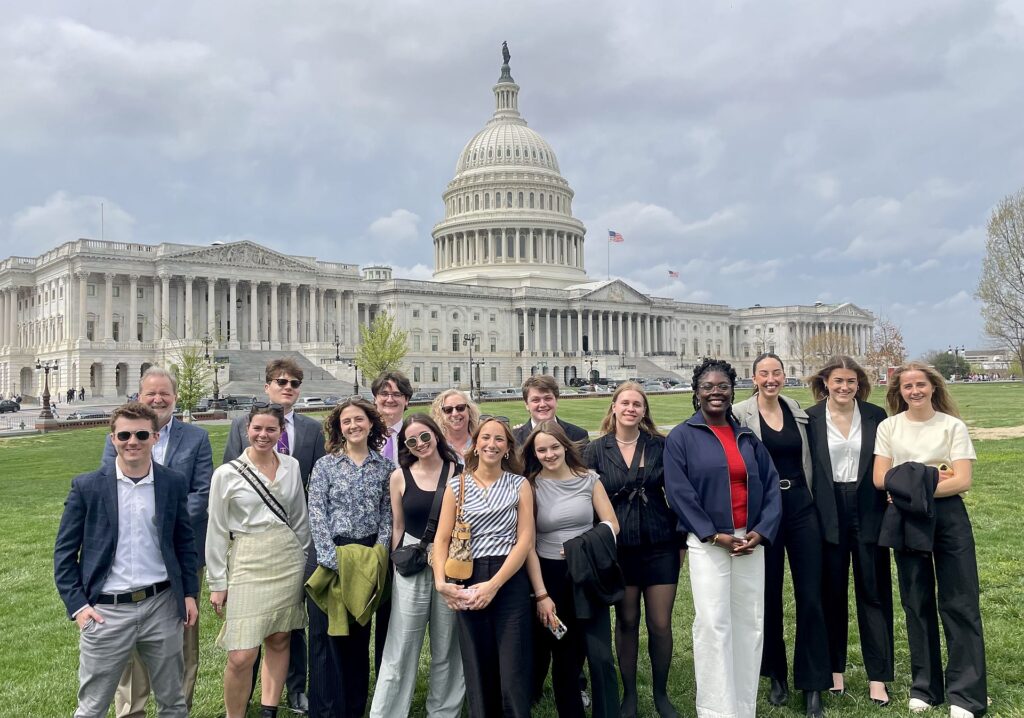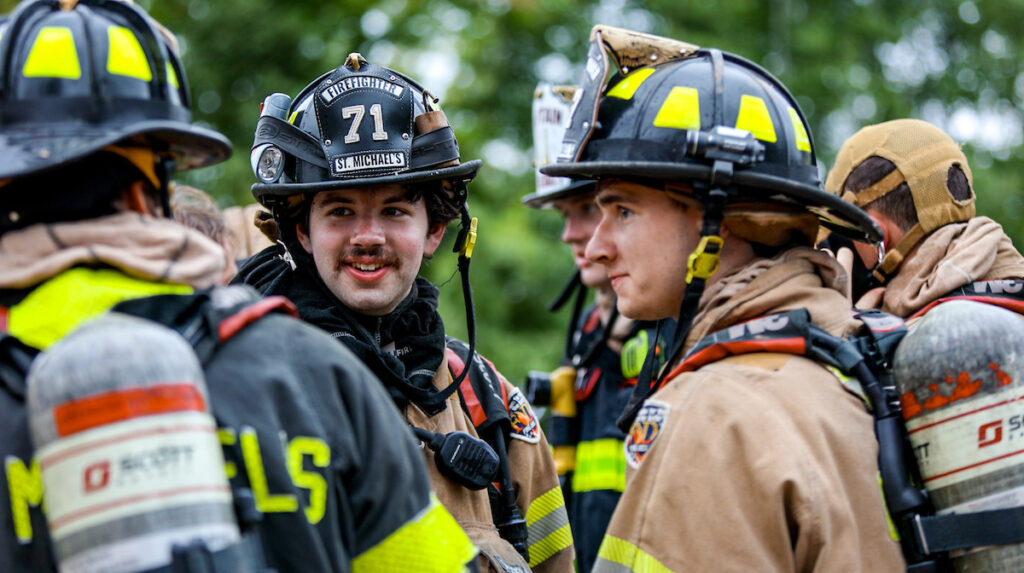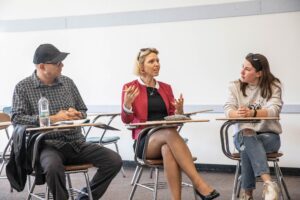
Agnieszka Legucka from Poland is a senior analyst on Russia at the Polish Institute of International Affairs. (Photo by Cat Cutillo)
Six foreign policy experts from Greece, Poland, Spain, Denmark, Germany and Norway met students and faculty on campus last week, hosted by the Institute for Global Engagement, to discuss foreign policy issues of concern in Europe and the U.S. The visitors came to Vermont through the U.S. Department of State’s International Visitor Leadership Program, hosted by the Vermont Council on World Affairs.
Five students — including two international students — all of whom have majors in International Relations or Political Science, participated in the discussion along with Shefali Misra, Associate Professor of Political Science, and Jeffrey Ayres, Chair and Professor of Political Science and International Relations and Director of the Institute for Global Engagement.
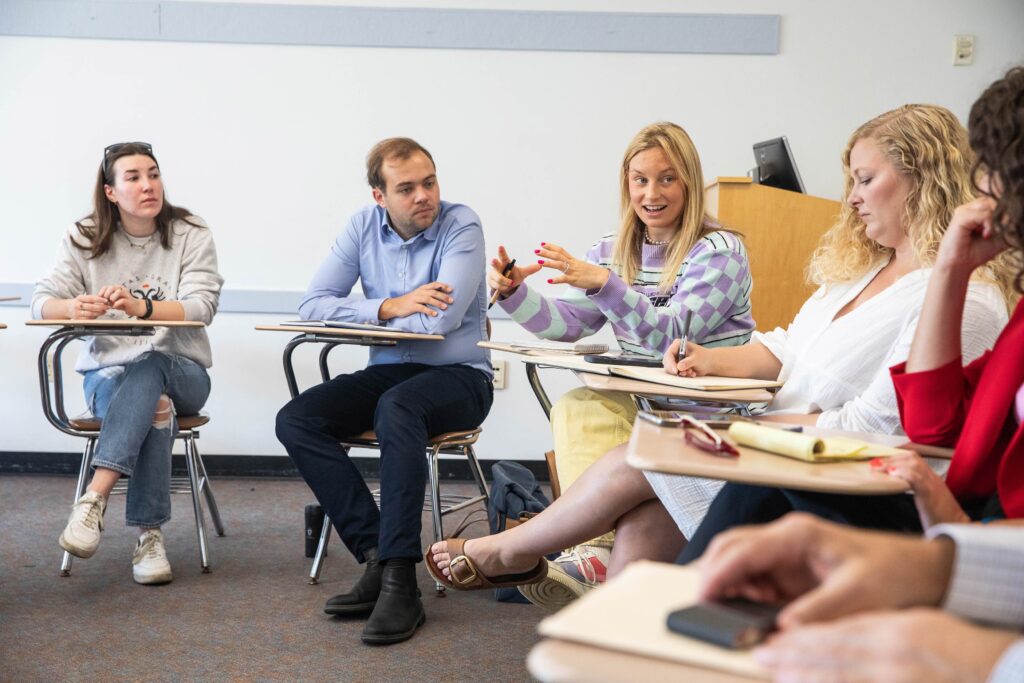
Margrethe Froland ’25 is an international student at Saint Michael’s College from Norway majoring in International Relations and Economics. (Photo by Cat Cutillo)
The visitors arrived in Vermont as part of the U.S. Department of State’s premier professional exchange program, to learn how states get involved in the formulation of foreign policy, and said they met with political leaders such as Vermont Lieutenant Governor David Zuckerman during their stay. They specifically visited St. Mike’s to meet with college-age youth and members of the campus community, pulling desks into a circle with the students and faculty, and launching into an hour-long discussion.
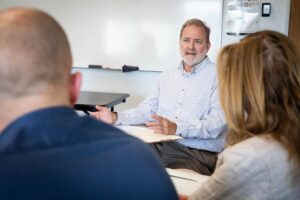
Jeffrey Ayres is Chair and Professor of Political Science and International Relations and Director of the Institute for Global Engagement at Saint Michael’s College. (Photo by Cat Cutillo)
“There’s a huge question in Europe, especially in Ukraine, [what] U.S. support will look next year in the upcoming 2024 election and how the elections might affect U.S. support for Ukraine,” said Stephan Bischoff of Germany at the beginning of the discussion.
Professor Ayres described a course he’s teaching this fall for a capstone senior seminar in the Political Science Department and International Relations Program in which his students are currently focused on the impact of the Trump years on global opinions of the U.S and U.S. foreign policy making.
“We have this incredible division politically which I think, in part, explains the timidity of the Biden administration and others because of the looming elections next year,” said Professor Ayres.
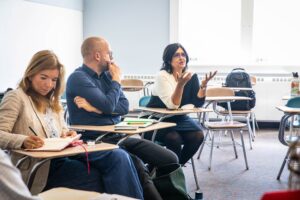
Shefali Misra is Associate Professor of Political Science at Saint Michael’s College. (Photo by Cat Cutillo)
Professor Misra explained to the visitors that while Vermont is a tiny state “it has an outsized voice” and is “worth much more in its weight in national politics” because of U.S. Senator Bernie Sanders and former Senator Patrick Leahy.
Enma Lopez Araujo from Spain asked the students what role they think the U.S. should take in the future.
“Public opinion, right now, can be described as tired. The people of the United States are extraordinarily tired of being neglected, and also there’s the fear of Trump,” explained Brigid Christiano ’24, who is majoring in International Relations and Spanish. “A lot of people my age, our thoughts about the future are very dismal and dim because we don’t see a strong sense of democracy coming through.”
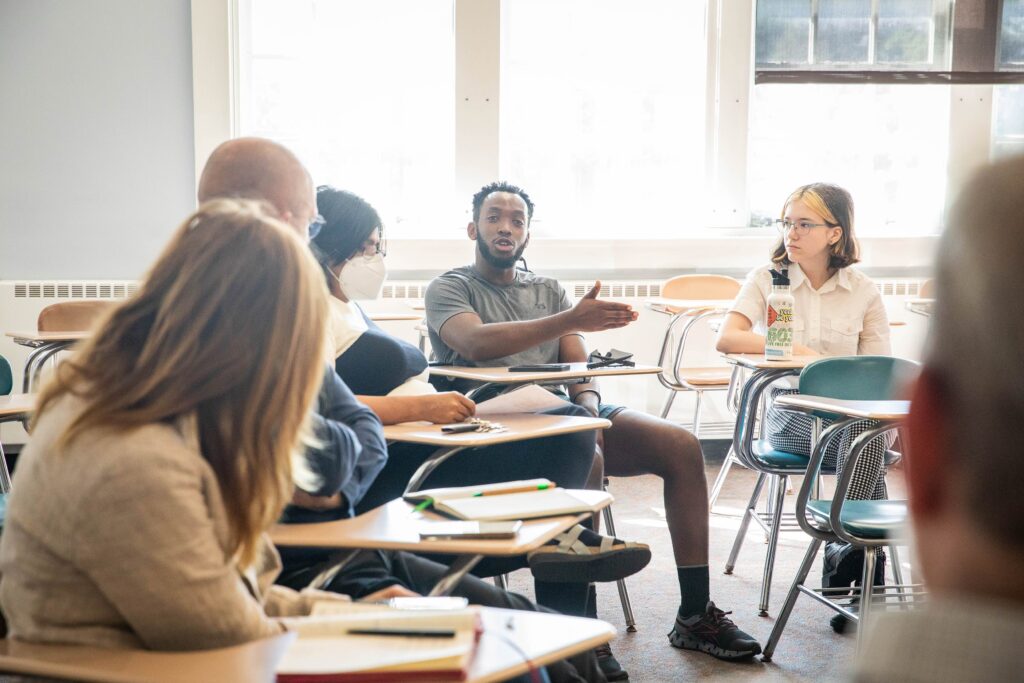
Olivier Niyonshuti ’25 is an international student from Rwanda at Saint Michael’s College who is majoring in International Relations. (Photo by Cat Cutillo)
Olivier Niyonshuti ’25, an international student from Rwanda who is majoring in International Relations, said he believes the United States needs to change their approach when they go into a new culture to offer support.
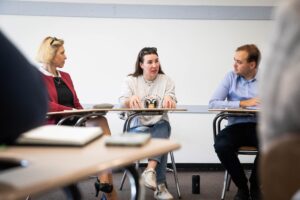
Brigid Christiano ’24 is a Saint Michael’s College student majoring in International Relations and Spanish. (Photo by Cat Cutillo)
“Don’t show them how to be. Work with them in the way that they want,” Niyonshuti said. “They have their own way of living, which goes with their values, their culture, their traditions and their religion. Africa is a continent of religious people. Bringing new strategies, complying and working with the people — especially on the African continent — that’s going to be a good superpower.”
Sean Hurley ’27, who is a first-year student majoring in Political Science and Spanish, said his peers struggle with wanting U.S. money spent domestically on education to fund priorities such as student debt relief.
“There’s a bit of hesitancy in young people supporting initiatives that supposedly take money away from them,” Hurley said. “At the same time, there’s a moral compass that’s for supporting relief for natural disasters.”
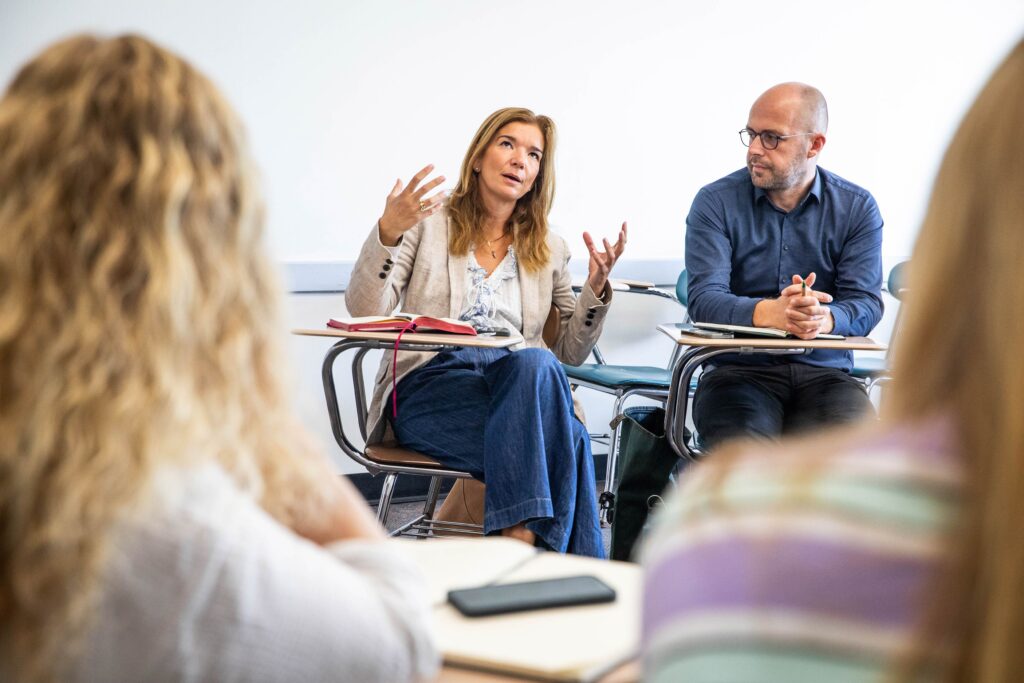
Dr. Revekka Paidi of Greece is Associate Professor at the University of Macedonia. (Photo by Cat Cutillo)
Towards the end of the discussion, another first-year student, Arwen Chalsma ’27, who is majoring in International Relations, said that the effects of the war on Ukraine will ripple globally, and that it is ultimately, “the entire world’s war.” A similar sentiment was shared by international student, Margrethe Froland ’25, who is from Norway and majoring in International Relations and Economics.
“Our generation is aware that global issues require global cooperation and America has a significant role to play,” Froland said.
After an hour, the European visitors’ bus came to collect them. The group would be traveling on to Utah the following day to conclude their exchange program.

For all press inquiries contact Elizabeth Murray, Associate Director of Communications at Saint Michael's College.

